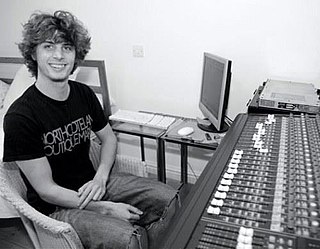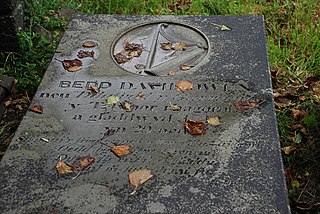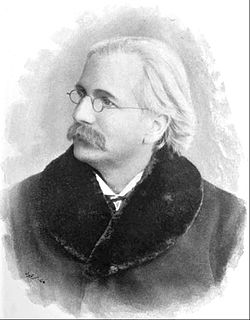 W
WJordan Andrews is a Welsh composer, musician and producer. After graduating from the Academy of Contemporary Music, he started his own commercial recording studio in Cardiff, Ripefruit Recordings, where he has worked with some of the city's most exciting talent. Jordan worked with his brother, director & film maker Ryan Andrews on a number of recent projects, including the film Elfie Hopkins, where Andrews is credited as film score composer.
 W
WRichard Barrett is a Welsh composer.
 W
WNicholas Bennett was a Welsh historian and musician. He was born in Glanrafon, Trefeglwys, Montgomeryshire. His collection of musical works included over 700 Welsh airs. His wrote the songs "Y Cerddor" and "Songs of the Four Nations". He died in August 1899 is buried in Llanfihangel, Trefeglwys.
 W
WLlewela Davies was a Welsh pianist and composer who toured with Dame Nellie Melba.
 W
WEdward Edwards, also known by his bardic name of "Pencerdd Ceredigion", was a Welsh musician and composer.
 W
WGareth Glyn, born Gareth Glynne Davies, is a Welsh composer and radio broadcaster.
 W
WJohn Greaves is a British bass guitarist and composer who was a member of Henry Cow and has collaborated with Peter Blegvad. He was also a member of National Health and Soft Heap, and has recorded several solo albums, including Accident (1982), Parrot Fashions (1984), The Caretaker (2001) and Greaves Verlaine (2008).
 W
WGwilym Gwent born William Aubrey Williams, was a Welsh composer.
 W
WArwel Hughes OBE was a Welsh orchestral conductor and composer.
 W
WDavid Jenkins was a Welsh composer, best known for his choral works and hymn tunes.
 W
WDaniel Jenkyn Jones was a Welsh composer of classical music, who worked in Britain. He used both serial and tonal techniques. He is best known for his quartets and thirteen symphonies and for his song settings for Dylan Thomas's play, Under Milk Wood.
 W
WEdward Jones was a Welsh harpist, bard, performer, composer, arranger, and collector of music. He was commonly known by the bardic name of "Bardd y Brenin", which he took in 1820, when King George IV, his patron, came to the throne.
 W
WJoseph David Jones was a Welsh composer and schoolmaster, commonly known as J. D. Jones. He was the father of the politician and industrialist Sir Henry Haydn Jones and the renowned Congregationalist minister, John Daniel Jones (1865-1942).
 W
WIdris Lewis was a Welsh conductor and composer. He worked on the film scores of a number of productions during the 1930s, when he was employed by British International Pictures. He was the Director of Music for the Welsh Region of the BBC.
 W
WMargaret More was a British composer.
 W
WDavid Owen was a Welsh harpist, best remembered as the composer of the popular song, "Dafydd y Garreg Wen", which according to tradition Owen composed as he was dying. Dafydd y Garreg Wen was later adapted and published by harpist Edward Jones.
 W
WMorfydd Llwyn Owen was a Welsh composer, pianist and mezzo-soprano. A prolific composer, as well as a member of influential intellectual circles, she died shortly before her 27th birthday.
 W
WJoseph Parry was a Welsh composer and musician. Born in Merthyr Tydfil, Wales, he is best known as the composer of "Myfanwy" and the hymn tune "Aberystwyth", on which the African song "Nkosi Sikelel' iAfrika" is said to be based. Parry was also the first Welshman to compose an opera; his composition, Blodwen, was the first opera in the Welsh language.
 W
WJulian Philips is a British composer. Philips' works have been performed at major music festivals, including The Proms, Tanglewood, Three Choirs Festival, at the Wigmore Hall, South Bank Centre and Berlin Philharmonic Chamber Music Hall and by international artists such as Gerald Finley, Dawn Upshaw, Sir Thomas Allen, the Vertavo String Quartet, the Tanglewood Festival Orchestra, the BBC orchestras and the Aurora Orchestra.
 W
WRowland Huw Prichard was a Welsh musician. A native of Graienyn, near Bala, he lived most of his life in the area, serving for a time as a loom tender's assistant in Holywell, where he died. In 1844 Prichard published Cyfaill y Cantorion, a song book intended for children.
 W
WDaniel Protheroe, was a Welsh composer and conductor, born at Cwmgiedd, Brecknockshire. After success at the National Eisteddfod at a young age, he immigrated to the US, where he was educated. He is best known for composing Calvinist Methodist hymns.
 W
WHenry Brinley Richards was a Welsh composer, who also published some works under the pseudonym 'Carl Luini'.
 W
WEdward Jones Stephen, often known by his bardic name of Tanymarian, was a Welsh musician, singer and composer, mainly of hymns and songs.
 W
WAlec Andrew Templeton was a Welsh composer, pianist and satirist.
 W
WWilliam Stanley Gwynn Williams was a musician and composer, also lecturer, author, editor and broadcaster on the history of British and in particular Welsh music. He was prominent in the foundation of the International Eisteddfod at Llangollen, Wales in 1947 and become its first musical director.
 W
WTim Wright, alias CoLD SToRAGE, is a Welsh video game music composer most known for his work in video game soundtracks such as Shadow of the Beast II, Agony, Lemmings, Wipeout and Colony Wars.